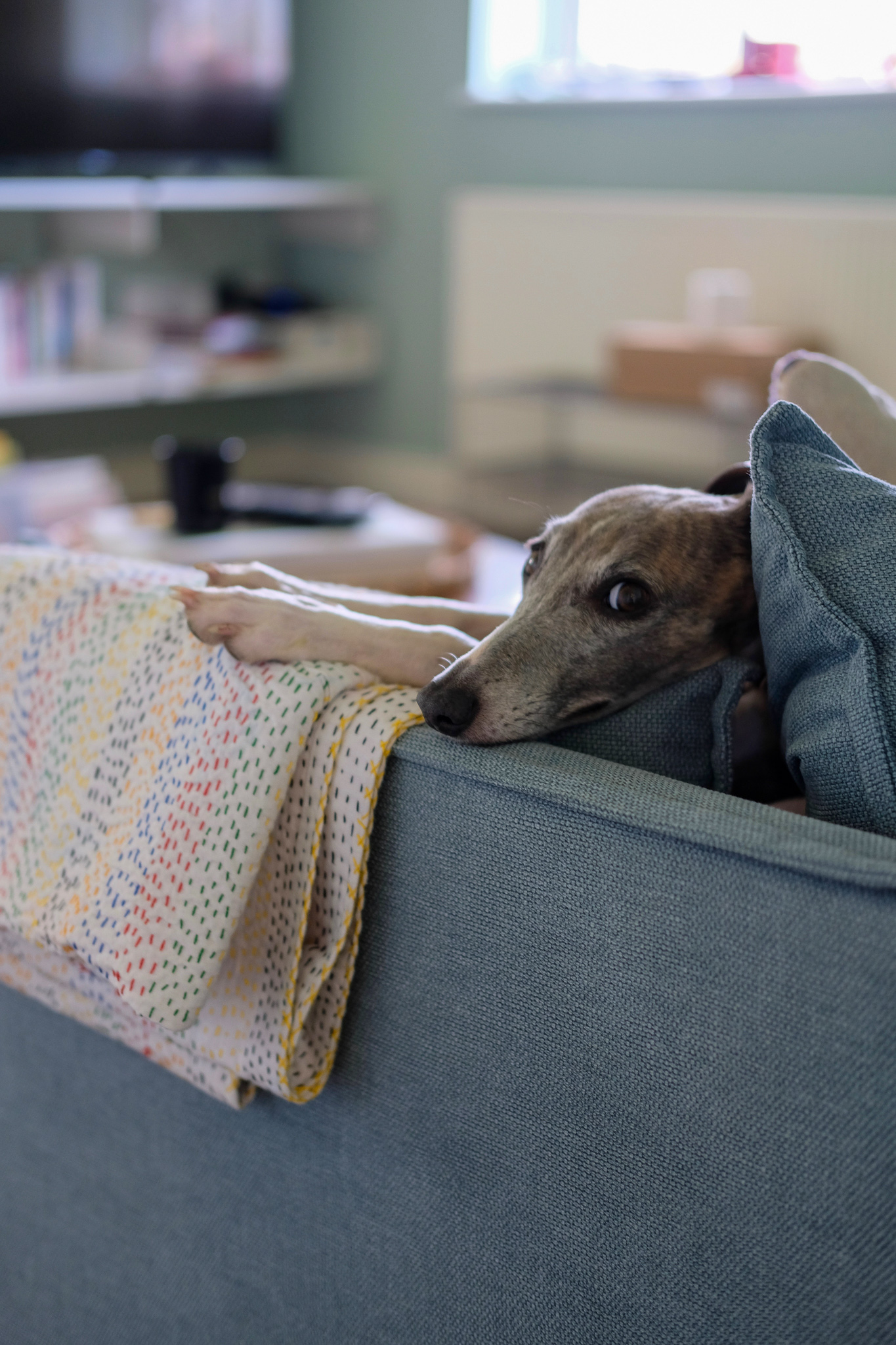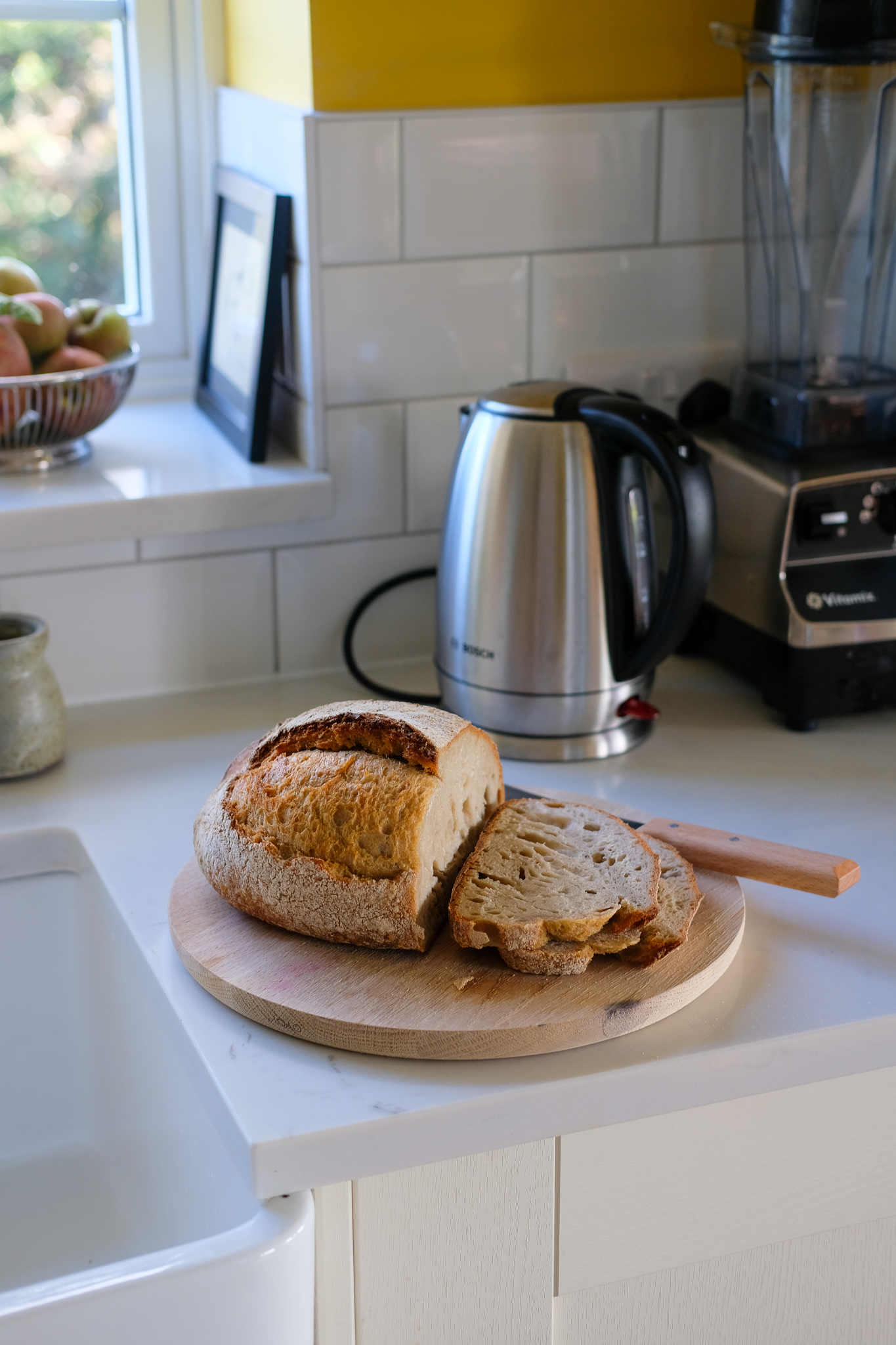I started my career in London working in food and drinks marketing after I graduated from university. I wasn’t happy at all in London, or in my job, and had a real yearning to work with my hands and be outside. I had had a growing interest in food sustainability up until that point and it was at this stage I decided to bite the bullet and make the move. I attended Ballymaloe Cookery School and then moved to Wales to build a vegetable garden in Hawarden. Since then, I have worked on various food projects based around Hawarden Estate Farm Shop, trying to make it as much a circular business as possible in terms of growing produce ourselves, working with local suppliers, and wasting as little as possible. Alongside that I also run supper clubs and work on my own recipe development.
Where did your passion for sustainability in regards to food, come from?
I have always been quite switched onto food, how it makes me feel, and what different food does for us in terms of nutrition. After I graduated from university (in Edinburgh) I begun to delve quite deeply into books about sustainable farming, and documentaries. I got hooked pretty easily and became somewhat obsessed with food sustainability. In particular, a chef called Dan Barber really inspired me, as well as many other farmers and cooks I read about and watched.
The Good Life Experience and my work within that definitely helped to shape my interest as well. I was surrounded by some incredible chefs who were dedicated to sustainable ingredients, and I just became really interested in being able to follow a similar career path. I remember watching a food sustainability panel at the Good Life, probably four years ago, and actually finding it so moving that I was in tears by the end. I think at that point I kind of knew I had to make something out of it for myself.
What would your top tips be for our readers that can be implemented day to day, in order for them to become more responsible when it comes to their food choices?
It’s a complete minefield so don’t be too hard on yourself. Food is to be enjoyed and it should stay that way. However, there are definitely small things we can do and changes that we can make that slowly become habits and make a big difference in the long run. It is a legal requirement for supermarkets to display on labels which country the fresh produce has come from. So, when you see that a vegetable was grown in Mexico, maybe swap it out in your shop for something that was grown closer to home. In summer this can nearly always be from the UK, and in deep winter maybe go further afield to Europe to get a bit more variety in your diet.
When it comes to meat and dairy products, rather than seeing these as ingredients that need to be implemented into every meal, maybe choose them less often and when you do buy meat or dairy, because you are eating less, you might be able to afford to buy from an independent butcher or cheesemonger. This way you will be able to guarantee quality, hopefully grass-fed and organic, and in turn this is always going to taste better too!
Aside from food, how would you say you approach other elements of your life in a conscious manner?
Great question! I would say I approach other areas of my life in a very similar way. One of the reasons why I found it challenging adapting to working life in London was because I just found the pace of life there incredibly exhausting, and so slowing down in Wales has really changed my life for the better. This allows me to see seasonal changes far more clearly than I did before and therefore be more engaged with living in line with the seasons, deepening my connection to nature. I think the situation that the food system is in is very similar to the state of the fashion industry, and I’ve always been quite interested in clothes, so my interest has naturally leaned into the way I buy and think about clothes too. I try to not buy from fast fashion brands, and only from small independent companies and actually, a lot of my clothes I buy second hand too. I swear by buying from Ebay!

Your campfire cooking sessions at Summer Camp & The Good Life Society must be a wonderful way to get the word out on your methods in both cooking and growing, could you take us through a typical session?
Yes! They are so much fun. I usually start by talking about the ingredients that I am going to cook with, as my style of cooking is based around what is available to me at the time. Especially during the summer I am able to grow the majority of the produce that I cook with, so it’s great to be able to talk through the vegetables, what varieties they are, and why I enjoy growing specific things (and not others!). I’ll then talk through any other products I am cooking with and where they have come from and why I love them. I try to only cook with ingredients I’m fully engaged with and understand the story of, while knowing the people personally who produced them. I cook vegetarian or pescatarian food so most of the time the vegetables take centre stage, and that’s quite fun because I think most people relate cooking on barbecues or fire to cooking big cuts of meat. I love doing the demos because it gives me a chance to talk through all the produce properly, which is something I often don’t get time for at supper clubs.
On that note we actually have a series of guest chef residencies this winter at Glen Dye featuring some of my favourite chefs coming up and cooking for us.
Lastly, what meal do you personally find yourself going back to again and again?…. Can you share the recipe?
Going into autumn right now I have found myself going back to a nice, simple bean stew again and again.
Bean Stew Recipe:
Ingredients:
- Two carrots
- Two sticks of celery
- One red pepper
- Two tbsp unsalted butter
- Three cloves of garlic
- Two shallots
- Two bay leaves
- One tin of chopped tomatoes
- A tin of cannellini beans
- A tin of butter beans
- Two to three sprigs of thyme
- Two to three sprigs of rosemary
- 150ml red wine
- Sea salt and pepper, for seasoning
Method:
- Dice the carrots, celery, and shallots and cook them on a low heat with the butter in a deep pan. Season with SEA salt and black pepper and add the bay leaves.
- Cook, stirring regularly, until the shallots are soft. This should take about ten minutes.
- Once the shallots are soft, add the crushed garlic and diced red pepper and let them cook for a further two or three minutes.
- Once the garlic and pepper are cooked, add the tinned tomatoes, red wine, and the cannellini and butter beans. Add the rosemary and thyme leaves, place lid on, and let simmer.
- The longer you leave the stew the more the flavours will deepen and the better it will taste, so I would leave it for a minimum or fifteen minutes. Serve with a hunk of sourdough toast or a baked potato, and enjoy!
Imagery courtesy of Xanthe Gladstone & Meg Ward



